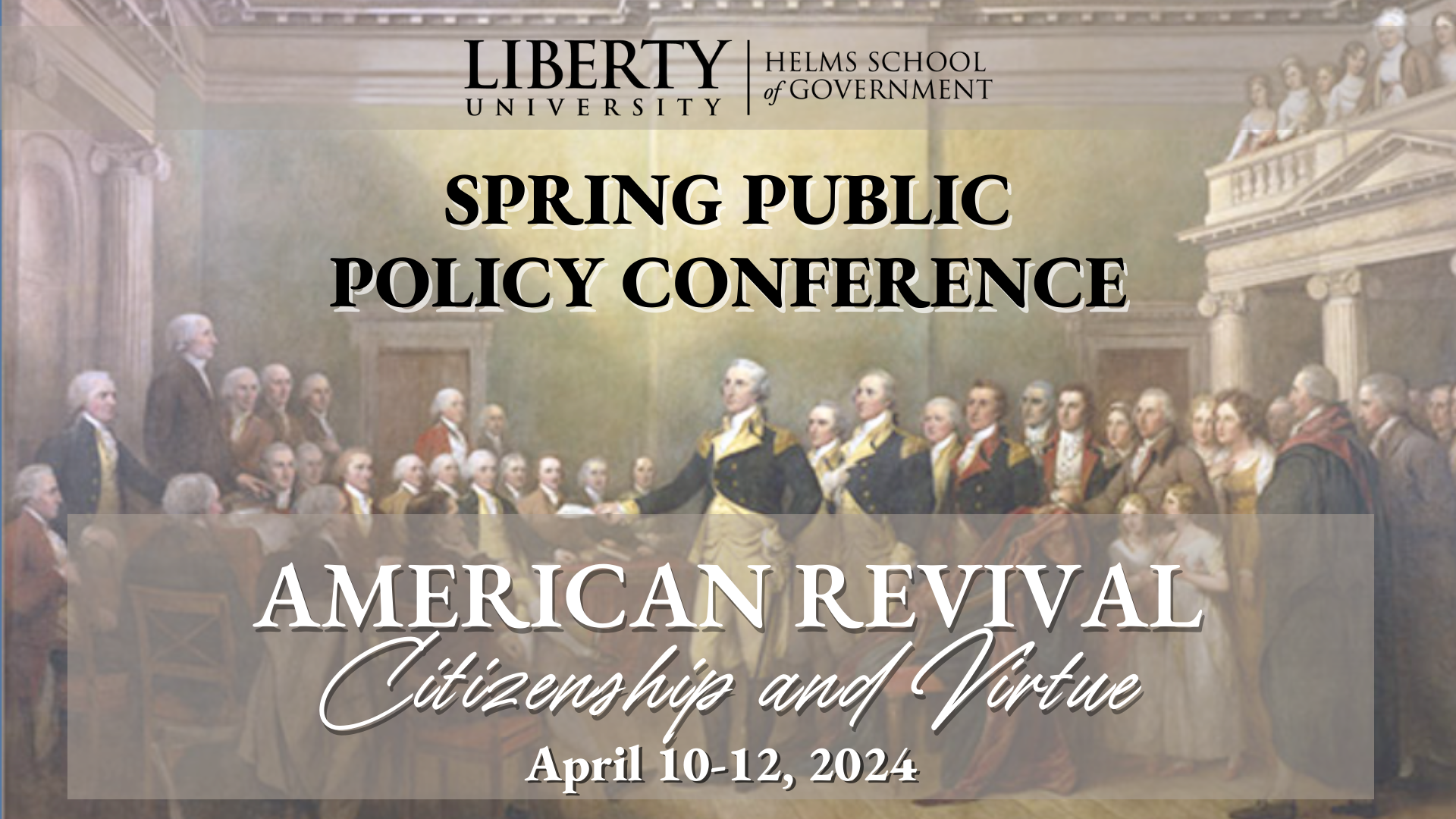Location
Cultural & Social Challenges
Level of Education
Undergraduate
Keywords
Christianity, Politics, Biblical Duty, Political Theory, Culture Issue
Presenter Names and Speeches.
Katherine Musgrove
A Senior at Liberty University studying Government: Policy and Politics with a minor in Chinese.
Abstract
Christian duty toward government and what it entails has been debated many times. There are arguments that say the church’s main focus should be on influencing and being involved in governmental affairs, and there are arguments that Christians should just stay out of politics. However, from a Biblical perspective, what does the relationship truly look like between a Christian and the government? Is there a Biblical obligation to be involved in government? Looking at the Bible as well as other primary and scholarly sources, most evidence leads to a more balanced opinion that it is wise for people to be involved in government and that a Christians’ “duty” towards government is obedience (Romans 13:1-7, New American Standard Bible).[1],[2],[3],[4] In addition, Christians only have an obligation to be more heavily involved in government if God calls them to lead (Genesis 9:8-17; 12; 15; 25:23; 28; 1 Samuel 8-10; and John 19:10-11). Therefore, not everyone has to run for election and not everyone should stay at home and never touch politics. Christians are Biblically obligated to obey government, which might include being involved in some capacity, but Christians are not Biblically obligated to do more than obey (Romans 13:1-7).
[1] Marcus Tullius Cicero, On Duties, trans. Benjamin Patrick Newton, ed. Thomas L. Pangle and Allan Bloom (Ithaca, NY, or London, UK: Cornell University Press, 2016), ProQuest Ebook Central, accessed December 7, 2023, https://ebookcentral.proquest.com/lib/liberty/reader.action?docID=4648709&ppg=1.
[2] John Locke, Second Treatise of Government (1690), The Project Gutenberg eBook, released January 1, 2005, updated December 21, 2021, accessed December 7, 2023, https://www.gutenberg.org/cache/epub/7370/pg7370-images.html.
[3] Plato, The Republic, (Warsaw: Ktoczyta.pl, 2019), ProQuest Ebook Central, accessed December 7, 2023, https://ebookcentral.proquest.com/lib/liberty/detail.action?docID=6124448.
[4] John Quincy Adams quoted in "'Duty is Ours: Results are God's'" by Debbie Wuthnow, iVoterGuide, accessed November 15, 2023, https://ivoterguide.com/news/Post-Election-2022.
Included in
Biblical Duty and Government
Cultural & Social Challenges
Christian duty toward government and what it entails has been debated many times. There are arguments that say the church’s main focus should be on influencing and being involved in governmental affairs, and there are arguments that Christians should just stay out of politics. However, from a Biblical perspective, what does the relationship truly look like between a Christian and the government? Is there a Biblical obligation to be involved in government? Looking at the Bible as well as other primary and scholarly sources, most evidence leads to a more balanced opinion that it is wise for people to be involved in government and that a Christians’ “duty” towards government is obedience (Romans 13:1-7, New American Standard Bible).[1],[2],[3],[4] In addition, Christians only have an obligation to be more heavily involved in government if God calls them to lead (Genesis 9:8-17; 12; 15; 25:23; 28; 1 Samuel 8-10; and John 19:10-11). Therefore, not everyone has to run for election and not everyone should stay at home and never touch politics. Christians are Biblically obligated to obey government, which might include being involved in some capacity, but Christians are not Biblically obligated to do more than obey (Romans 13:1-7).
[1] Marcus Tullius Cicero, On Duties, trans. Benjamin Patrick Newton, ed. Thomas L. Pangle and Allan Bloom (Ithaca, NY, or London, UK: Cornell University Press, 2016), ProQuest Ebook Central, accessed December 7, 2023, https://ebookcentral.proquest.com/lib/liberty/reader.action?docID=4648709&ppg=1.
[2] John Locke, Second Treatise of Government (1690), The Project Gutenberg eBook, released January 1, 2005, updated December 21, 2021, accessed December 7, 2023, https://www.gutenberg.org/cache/epub/7370/pg7370-images.html.
[3] Plato, The Republic, (Warsaw: Ktoczyta.pl, 2019), ProQuest Ebook Central, accessed December 7, 2023, https://ebookcentral.proquest.com/lib/liberty/detail.action?docID=6124448.
[4] John Quincy Adams quoted in "'Duty is Ours: Results are God's'" by Debbie Wuthnow, iVoterGuide, accessed November 15, 2023, https://ivoterguide.com/news/Post-Election-2022.



